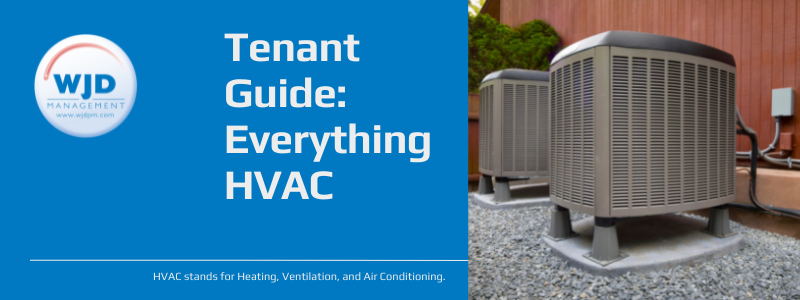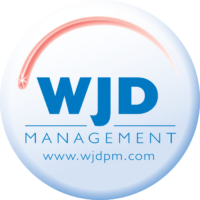Tenant Guide: HVAC Maintenance for Your Rental Home
What You Need to Know About HVAC (heating, ventilation and air conditioning)
Here is your tenant guide to HVAC Maintenance. You may have heard the term “HVAC” at one time or another in reference to heating and cooling systems. Simply put, the term “HVAC” stands for heating, ventilation and air conditioning. The HVAC system is comprised of an inside unit, an outside unit and a system of interior ductwork. In this article, we’ll go over everything you need to know about HVAC maintenance for your rental home, and how an HVAC system can affect your living comfort.
Do Rental Homes Require HVAC Systems?
When it comes to an HVAC system versus other types of heating and cooling units, you will find a big difference. First, landlords are not required to provide an actual HVAC system however, heating in a rental home is required in every state. This includes hot running water along with a separate heat source for the home. Air conditioning is another matter though because not all states require an air conditioning unit for a rental home. Please note that every home in our managed inventory does in fact have some manner of air conditioning, typically an HVAC system or in a few cases, window units.
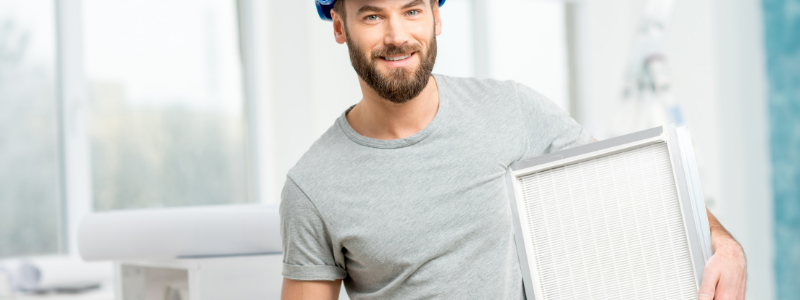
The Importance of HVAC Maintenance
Why is it important to maintain an HVAC system? Well, if an HVAC unit is not properly maintained, it can affect its overall performance. Whether it’s in the middle of winter or during those hot summer days, the job of an HVAC system is to keep you nice and comfortable in your rental home. HVAC maintenance for your rental home is important!
If the HVAC system is not properly maintained, it can struggle to keep your home at the desired temperature. The unit will run longer than it should and can even increase your monthly utility bills. It could also require repairs which may have been avoided with correct maintenance, and these often-costly repairs could actually be charged to the tenant. Let’s go over some common maintenance issues you may encounter.
Tenant Guide: HVAC Maintenance for Your Rental Home
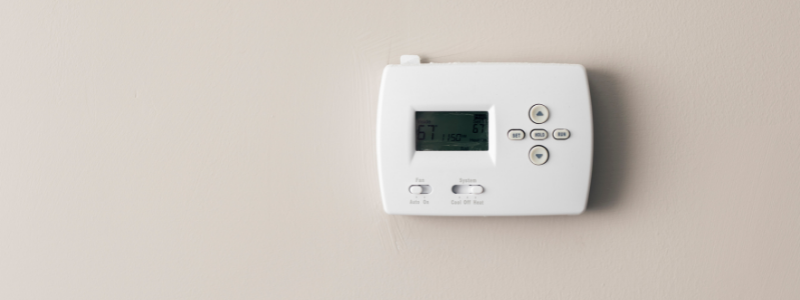
Tenant Guide: HVAC Maintenance for Your Rental Home
As a tenant, two things that you should be on the lookout for in your home are fluctuating temperatures and decreased airflow. If the system struggles to keep your home at the selected temperature and never turns off, it could be a sign of mechanical failure. This is especially true with heat pumps although they typically have longer operating cycles than gas-fired units. If your home has a programmable thermostat, a simple programming issue may be the cause. In this case, the tenant should check the thermostat’s manual to confirm that everything is correct with the daily settings. On the other hand, if you notice reduced air flow from your vents, you probably have a clogged furnace filter.
Leave It to the Professionals
When it comes to HVAC maintenance and repairs, it is always best to leave it to the professionals. Even though a problem may seem easy to fix, you could void the warranty if you try to fix it yourself. You should always leave complicated HVAC issues to a qualified HVAC technician. Should you try to repair it yourself, you will most likely incur the repair cost if you damage the unit in the process. However, it is imperative that you change the filter(s) on your HVAC system (even window A/C units have filters!) regularly, at a minimum of every three months. Failure to do so can cause the system to fail and the cost to repair would again most likely be yours.
When to Contact Your Property Manager
It’s important to promptly submit a maintenance request when you believe that something is wrong with your HVAC system. Once you’ve done so, WJD Management will assign a technician to come to your home and address the problem. For example, if the system is set to air conditioning but it’s not cooling your home, this can be the sign of a refrigerant leak, which should also be investigated only by an HVAC professional.
What Can You Do as the Tenant?
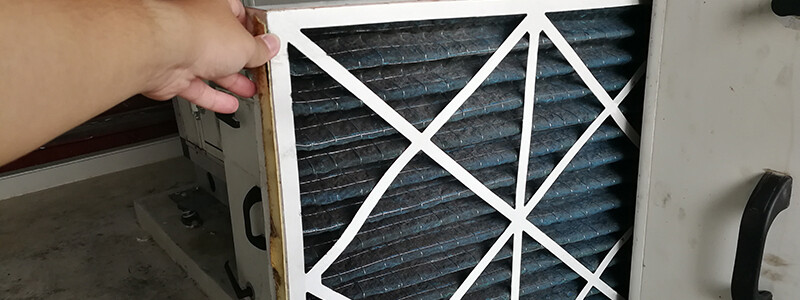
Tenant Guide: Everything HVAC
Although there are many things you shouldn’t fix on your own, you can do a few things that will help maintain the HVAC system. One of the most important aspects of maintaining an HVAC unit is changing or cleaning the air filter on a regular basis. The manufacturers usually recommend that you change your air filter(s) once a month or at least every three months. Most often there is only one filter which is located inside or next to the furnace. Larger homes may also have filters where the return air vents are located. Regardless, your Property Condition Report will identify where they all are located.
If you fail to properly clean or change the air filter(s) regularly, this can fall under tenant neglect. Changing the batteries in the thermostat is another simple yet important step you can take as the tenant.
Wear and Tear Vs. Neglect
The differences between reasonable wear and tear versus neglect can be subtle. It’s important that both the tenant and landlord know these differences. The goal here is to keep both parties on the same page to avoid any disagreements. Here are some examples of wear and tear compared to neglect:
Wear and Tear
- Fan belts
- Motors and bearings
- Evaporator coils
- Refrigerant leaks
Neglect
- Failure to clean or change air filter(s)
- Failure to replace thermostat batteries
- Failure to keep weeds and debris away from the outside unit
- Failure to keep the condensate drain free of debris
How to Keep the HVAC Running Efficiently
As a tenant, it is important to keep the HVAC system running smoothly. By doing this, you’ll be able to control your utility bills and remain comfortable all year long. The following steps can help keep your HVAC system running at an optimized level:
- Programming the thermostat (where applicable)
- Replacing the air filters regularly
- Clearing debris from around the outside unit
- Keeping the condensate drain open
These are the most important steps you can take to maximize the efficiency of your HVAC system. Remember, maintenance is the key to always keeping your home comfortable during the year. Hopefully, this article has clarified your role as a tenant regarding the HVAC system in your home. If you have any questions, you can always contact us. Just be sure to review this article first.
Follow us on Facebook, Twitter, LinkedIn, Instagram, and Pinterest for tips, ideas and updates.

